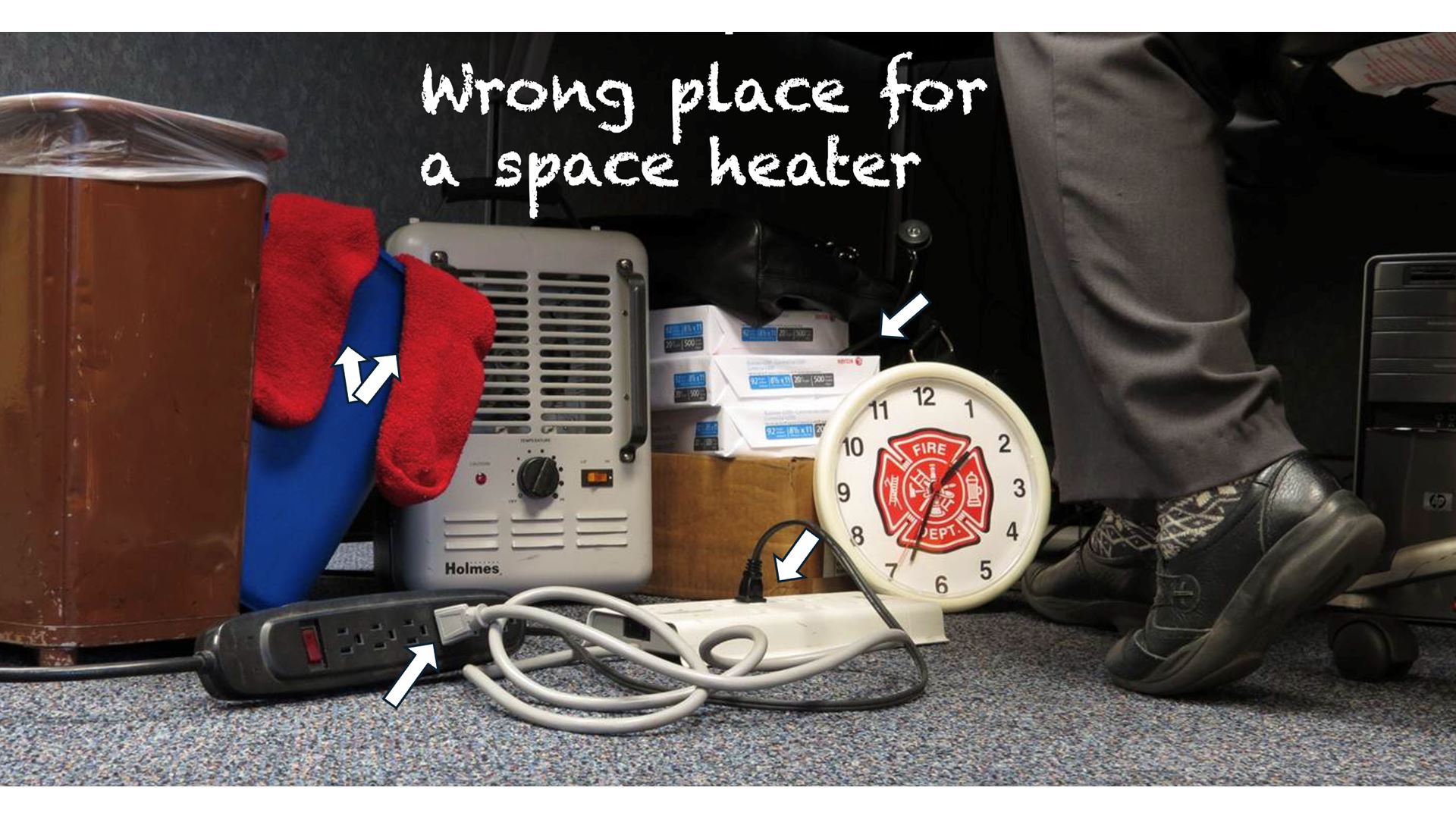Colder weather is finally arriving, along with the use of portable heaters. Yes, portable heaters are allowed on campus when you follow the Fire Prevention Guidelines. Portable propane heaters are NOT allowed on campus.
Please note that approval of all space heaters must now come through Environmental Health Safety and Risk Management (EHS&RM) and not through Facilities and Services. Before making a purchase, contact EHS&RM at 646-3327 or ehsrm@nmsu.edu.
When it’s chilly outside, there is nothing better than having a toasty house or office, and portable heaters are a great way to stay warm. However, if they are not properly used, they can be extremely dangerous. New Mexico State University Fire Department wants you to have a safe November. Here are some tips to follow when using a portable heater.
Not every portable heater works for every situation, which makes it extremely important to review the manufacture’s recommendations about the heater before you buy it. Here are some things to review when considering a portable heater:
- Check it monthly. If you do not have a carbon monoxide detector, it is highly recommend you purchase one before using a portable heater. Be sure to check the detector monthly to ensure it’s working properly.
- Proper fit. When you purchase a portable heater, be sure to buy one that is rated for the approximate square-footage of the room or space you plan to use it in. A gas space heater that is too large or improperly ventilated or malfunctioning can increase the risk of CO buildup. An electric space heater that is too large for a certain area will consume lots of energy and lead to higher utility bills.
- Safety certification. Portable space heaters that are listed by Nationally Recognized Testing Laboratories have been tested, proven and certified to meet specific safety standards. The manufacturers of these heaters are also required to provide consumers with important information about the safe usage and care of the units. Some common testing laboratory certifications to look for include UL (Underwriters Laboratories), CSA (Canadian Standards Association), ETL (Intertek Group) and AGA (American Gas Association). These certifications may not always be listed in product materials, so it's a good idea to ask about any safety listings the product has received.
- Opt for a tip-over feature. It’s always a good idea to look into what safety features your heaters have. For example, heaters that have tip-over and overheat protection are much safer than those that don’t. A heater equipped with a tip-over switch will automatically shut off if it is tipped over accidentally. Portable heaters with overheat protection switches function in nearly the same manner. This switch acts as a temperature sensor, detecting when a heater's internal components become too hot. The switch automatically shuts off the unit to prevent overheating.
- Maintain your heater. Just like checking your smoke detectors and carbon monoxide alarms, it is important to check and maintain your heater.
- Never leave your heater unattended; shut off and unplug the heater. When you are leaving an area, turn off the portable space heater and unplug it. Do this when you go to sleep as well, but make sure you have an adequate and safe heating alternative if need be. Many heaters feature programmable timers that can be used to program automatic on and off times.
- Educate your children about the need to be safe around the heater. Talk to them about not touching it, running around it or placing things on it.
- Three-Foot Distance. Make sure your heater is a safe distance from any combustible item. Position a portable space heater at least three feet away from furniture, window treatments, bedding, clothing, rugs and other combustibles. These items can easily catch fire if they contact a unit's electric heating element, open flame or too-hot surface. Never sit or drape anything on top of a portable heater. In addition, be sure that the heater is placed on a hard, level surface that is non-flammable.
- Never use portable propane heater inside your home or office. They are made to be used in well-ventilated open areas. Remember, propane heaters are not allowed on campus.
If you have any questions about the use or want help with installation, please contact the NMSU Fire Department at 646-2519. Stay warm and safe this winter season!
CUTLINE: Portable heaters are allowed on campus but not propane heaters. No extension cords should be used with these heaters and no daisy chaining (linking extension cords to other extension cords) should ever be used. Always keep combustibles at least three feet from a portable heater. (NMSU Fire Department photo)

